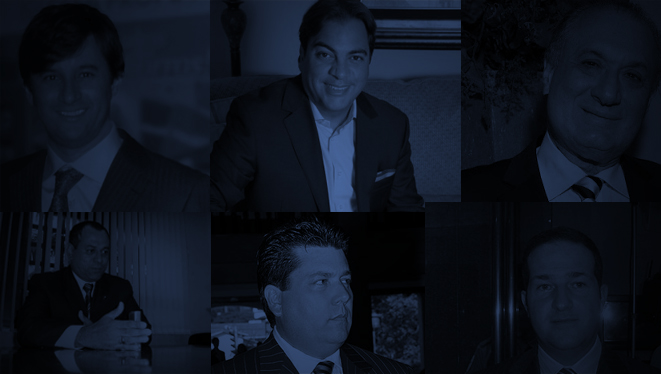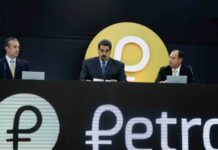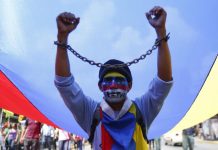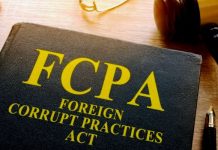
«Sometimes you put someone in charge of a state bank, and this person ends up doing with those public funds, which are not his, whatever the board of directors he appoints feels like doing,» said former president Hugo Chávez in his weekly program Aló, Presidente (Hello, President) No. 344 broadcasted on November 29, 2009. In that occasion, president Chávez referred to the Banfoandes case, which he described as «an administrative irregularity», calling to fight it «with all weapons available». He revealed that he had ordered an investigation, «even called the Attorney General’s office to ask for her collaboration, with an iron hand, on this matter because we cannot allow a public officer to continue playing games with people’s money», Chávez said.
By then, Lieutenant Alejandro Andrade Cedeño was the head of the National Treasury Office (NTO), a position he held until January 2011. From the 23rd of June, 2008, to the 1st of February, 2010, he was at the same time president of Banco de Desarrollo Económico y Social de Venezuela (Bank of Economic and Social Development, Bandes), and in August 2009 he was also appointed president of Banfoandes. In Bandes’ board of directors was María de los Ángeles González Rodríguez, who in 2013 pleaded guilty of receiving bribes, while serving as an official of Bandes, from stockbrokers in the United States in order to favour them in a business involving Venezuelan debt bonds.
It is clear that the target of the investigation ordered by President Hugo Chávez was Alejandro Andrade, who was requested to attend the above-mentioned show but never showed up; there was no «iron-fist investigation» on the performance of the military turned banker either. Nonetheless, shortly after, in February 2010, he was replaced in Bandes by Edmée Betancourt.
The merger concealed the irregularities
In the Official Gazette of the Bolivarian Republic of Venezuela, No. 39,329, dated December 16, 2009, it is announced the creation of Banco Bicentenario. This bank resulted from the merger of Banfoandes and private banks Confederado, Bolívar, and Central, which at that moment lost their legal personalities. Later on, in January 2010, Banorte would be added to Banco Bicentenario.
Bolívar and Confederado, along with Central and Banpro, were intervened and liquidated later that year, on November 29, 2009. «Between December 2008 and November this year (2009), the Superintendency of Banks has detected inconsistencies in the origin of funds, breach of solvency ratios and numerous violations of rules, unleashing an array of administrative measures prior to the intervention of Canarias, Confederate, Bolívar and Banpro,» reports El Universal in an article entitled «Banfoandes had 4.4 billion in other banks at the end of June», published on December 1st, 2009.
While state deposits continued fattening the coffers of small private banks, the situation within Banfoandes did not cause any storm beyond the remarks made by the very President of the Republic on his TV show.
What happened with the investigation against Banfoandes ordered by President Chavez? His own analysis led him to conclude that Banfoandes was one of the state banks with more funds deposited in private banks.
President Chávez and Lt. Alejandro Andrade knew each other from long time. They both participated in the failed coup d’état led by Chávez on February 4, 1992. When Chávez became President of Venezuela in 1998, Andrade was appointed Deputy Secretary of the National Constituent Assembly in 1999. Subsequently, he served as president of Fondo Único Social (FUS), before being put in charge of Bandes, Banfoandes, and the National Treasury Office.
By the time of the first bank interventions, it is estimated that Banfoandes had placed 4.4 billion bolivars in several Venezuelan private banks and kept 754.3 million bolivars in the intervened banks, notwithstanding the fact that the Venezuelan government was aware of the financial situation of those banks. Additionally, Banfoandes was the state bank having the largest number of debt bonds.
Statistics show that, by the end of June, 2009, Banfoandes had a significant amount of public funds placed in private banks through deposits and the purchase of securities —the overnight market— where short-term loans are given and mutual-fund operations are performed .
Banfoandes and the Venezuelan debt bonds—four years later
Investigation by the U.S. Securities and Exchange Commission (SEC), made public in August 2013 (four years after the bursting of the financial crisis), shed light on the case of the bribery that brokers working for Direct Access Partners (DAT), a company based in New York, gave to María de los Ángeles González, then Bandes’ Finance Manager.
Ernesto Luján, 50, and Tomas Alberto Bethancourt Clarke, 43, pleaded guilty to the charges of conspiring to bribe Bande’s Finance and Administration Manager. They also acknowledged having bribed Banfoandes’ Foreign Affairs Officer, whose name was not disclosed. Court records show that between early 2009 and 2012 Direct Access Partners generated transactions for over US $ 60 million in securities from Venezuelan banks.
Bande’s and Banfoande’s corrupt and fraudulent operations were performed between January 2009 and June 2010, which means that Lt. Alejandro Andrade is likely to have known about this bribery scheme. But in the case of Bandes, liability could also fall on Edmée Betancourt, who was appointed head of the bank in February 2010. However, Venezuela authorities have rule out the possibility of an investigation arguing that the bribe and the financial operations took place in the United States, disregarding its impact over the Venezuelan state banks involved.
Chávez’s trials
Between November 2009 and January 2011, twenty two banks were intervened in Venezuela. In addition to the merger that gave birth to Banco Bicentenario, the savings and loan institution Mi Casa was absorbed by Banco de Venezuela. Banco de Inversión Industrial (Industrial Investment Bank) was merged with the Industrial Bank of Venezuela, whose intervention ceased and the bank has been rehabilitated.
The financial institutions that were taken over are Canarias, Banpro, Baninvest, Real, Inverunión, Del Sol, Helm Bank of Venezuela, Bancoro, Banvalor, Casa Propia, and the four banks of Grupo Federal.
In the TV show Aló, Presidente No. 345, held on December 6, 2009, President Chávez referred to Ricardo Fernández Barrueco, principal shareholder of Canarias, Banpro, Bolívar and Confederate banks.
Briefcase companies
» … Mr. Fernandez, using money with criminal origins, started or activated, with a set of accomplices, an operation to purchase bank…»
…
«I am not a judge, but I have enough evidence to say that he is a criminal and that he has well-organized networks and mafias… «
…
» … Acting in complicity, Mr. Fernandez asks the banks —in this case Confederado and Banpro— for a loan… And here is the trap: he asks the bank for a loan, large loans for a company that does not exist, and that bank, with the complicity of senior public officials, the loan is granted… to a company that does not exist, that only exists on paper, on a briefcase—these are old bad habits that resist to be changed. Then with that money he goes and buys the very bank that lent him the money. In other words, he buys the bank with the client’s savings, and he pays much more than what the bank is really worth. Then they use the money to create what is called ‘a money centrifuge», transferring a great part of the funds to foreign banks and making the recently purchased bank in Venezuela run out of funds» (Aló Presidente, Nº 345).
Corruption
«… In the banks that were liquidated there were funds of several state agencies…. Of course, I am investigating since when those deposits were there and who is responsible for placing them there. We are not accusing anyone right now, no—everyone is presumed innocent until proven otherwise… I think that there is no private bank without state funds, be it from a governor’s office, a mayor’s office, a ministry or a state agency, take your pick. And private banks are constantly looking for state funds and offering interests and money under the table to capture those funds, corrupting public officials.» (Aló Presidente, Nº 345).
The National Assembly has to investigate
One week before, in his Aló, Presidente No. 344 broadcasted on November 29, 2009, from the commune El Maizal, Municipio Simón Planas of the city of Barquisimeto, Lara state, president Chávez, addressing deputy Darío Vivas, urged the National Assembly to investigate the placement of public funds in intervened banks.
«… There are some bankers in prison (…) and I’ve requested to investigate this case to the bottom, but every time I check I find things like the following: public funds, in large amounts, placed in private banks. In the meantime, you —said president Chávez, addressing his audience, people from the commune El Maizal— stay here planting beans, waiting for the financial support to arrive… «
Chávez: There are no sacred cows
Arné Chacón Escamillo, former president of Banco Real and member of Baninvest’s board of Baninvest, is the brother of Jesse Chacón, who by then was serving as Minister of Science and Technology. Referring to Arné Chacón, president Chávez said that his administration did not have sacred cows and that Arné Chacón was «rightly imprisoned and must pay for what he did». Talking about the rapid enrichment of the latter, Chávez said: «I know that one day he is very poor, just like me, and the next day he owns a stud farm and a bank. How’s that possible?»
Decisions
Of the 17 people that were arrested for their alleged participation in the banking crisis, only the vice-president and treasurer of Inverunión, together with a former messenger of the same bank, were convicted.
Only two bank owners were charged: Ricardo Fernández Berrueco and César Daniel Camejo Blanco, this one owner of Casa Propia Entidad de Ahorro y Préstamo.
Public officials Antonio Márquez and Mario Ricardo Dickson Gutiérrez (former president and member of the board, respectively, of the National Securities Commission) were also arrested.
Most of those arrested were charged for alleged misappropriation and diversion of savers’ money. Ricardo Fernández Barrueco was accused to act as an immediate collaborator, while his assistants José Camacho Uzcátegui and his daughter Caribay Camacho were considered necessary accomplices.
Only three of the detainees (Arné Chacón and Freddy Gómez Rangel, of Banco Real, and José Camacho Uzcátegui were charged with fraudulent appropriation of public funds.
César Daniel Camejo Blanco was charged with conspiracy and for publishing false financial information. Antonio Márquez was also charged with conspiracy.
The bankers that fled the country and are wanted in extradition include Pedro Torres Ciliberto, owner of Baninvest, Banco Real and Central; Gonzalo Tirado Yepes and Andrés José Delgado Almoguera, owner and manager of InverUnión and Mi Casa, respectively; Alvaro Gorrín Ramos and Ramón Javier Gorrín Amposta Claparol, president of Banco Canarias and CEO, International Operations, at the same bank; José Omar Contreras Ramírez, member of the board of Banco Federal; Juan Felipe Lara Fernández, member of the board of Banco Confederado, Bolívar Banco, and Banpro; Tomás Andrés Vásquez Estrella, José Luis Pichardo Salazar, Tomaso Oswaldo Ventresca Latorre and Rolando José Araujo Pisan, members of the board of Banco del Sol.
The names of Pedro Torres Ciliberto (father and son), Gonzalo Tirado Yepes, Eligio Cedeño and Nelson Mezerhane have been removed from Interpol’s red alert list. When the Venezuelan Attorney General’s office complained, Interpol responded saying that they have not only removed those names from the red alert list but also block them, which means that «they will never again be included in an Interpol list, even if they commit other crimes, until the blockage is raised».
On December 29, 2012, twenty former executives of the intervened or liquidated financial institutions who were prosecuted for the commission of the above-mentioned offences were released on parole.
On December 31, the Supreme Court of Venezuela issued a press release entitled «Criminal Courts agree to revise preventive measures involving deprivation of liberty.» The revision was justified, the note writes, because detainees tended to exceed the minimum penalty that they could receive if convicted, and their liability would only be determined later on in an eventual public trial in which prosecutors will present the facts. At that time, President Chávez was fighting for his life in Cuba. What would have happened if he had been fully exercising the Presidency of the Republic?
Although the National Assembly never conducted the investigation requested by Chávez, on December 17, 2010, it modified and finally passed a new bill regulating the banking sector. The offence of misappropriation or diversion of public funds was removed from this bill. The trials of the people detained were delayed. President Chávez amended the error and, making use of his enabling power, restored the article penalizing the misappropriation or diversion of public funds, published on March 2nd, 2012, in the Official Gazette No. 39,627.
Five years later, Lt. Alejandro Andrade Cedeño continues to enjoy his enormous wealth, of which he makes grotesque exhibition. A crisis caused by corruption, fraud and the complicity of a perverse combination of pseudo bankers and corrupt public officials ends up without a single «big fish» convicted.
Although Nicolas Maduro, current President of Venezuela, said that «corruption is swallowing the revolution», no concrete measures have been taken to fight it, despite the fact that the National Assembly granted him the special powers conferred by the Enabling Act. Maduro, by the way, requested these powers to fight corruption; but once they were given to him, he never referred to it again.












